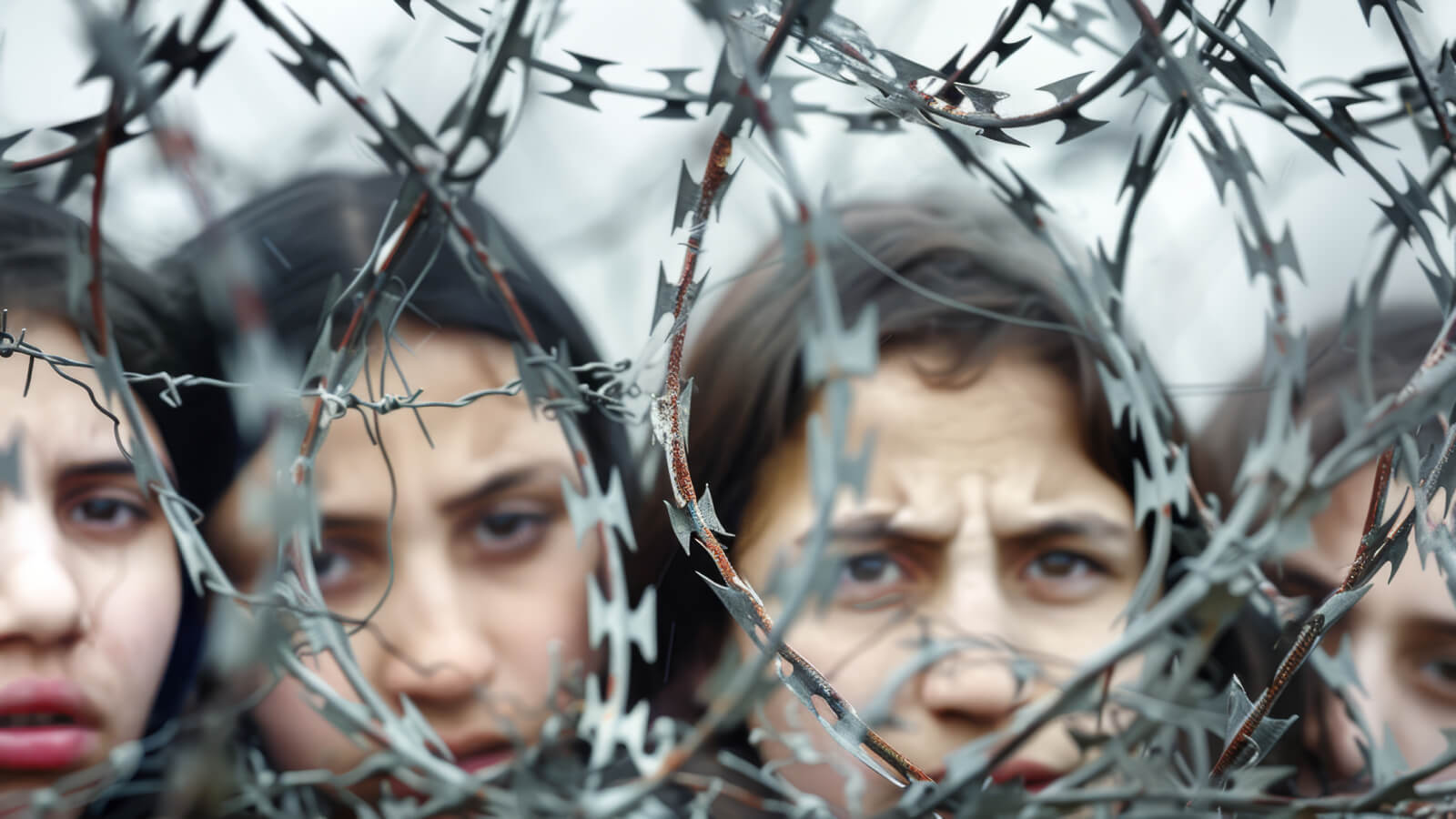Recruiting the Lost: How Terrorism Preys on Broken Identities and Abandoned Dreams
(Based on the live discourse of Param Dwij)
(परम द्विज के प्रवचन पर आधारित)

Opening Reflection:
Not all who join terrorist groups are evil.
Some are lost. Some are lonely. Some are angry. Some are just trying to belong.
And while it’s easy to see terrorists as monsters, the truth is more complicated—and more human.
Terrorism doesn’t always spring from an inherent desire to cause harm. Often, it’s a reaction to deeply unmet psychological needs and an inability to find meaning in a world that feels overwhelming and disconnected.
What if terrorism is not always born out of hatred… but out of emptiness?
This blog aims to explore how psychological vulnerability—not just ideology—makes individuals susceptible to radicalization and how we can intervene before it’s too late. Let’s delve into the root causes and understand the minds that are recruited, not just by doctrine but by their emotional and psychological voids.
The Anatomy of a Recruit: Who Gets Drawn In?
The media often portrays a single image of the terrorist: a young man from a disenfranchised background, indoctrinated by extremist ideas.
But psychology tells a more nuanced story. The reality is that radicalization doesn’t follow a straightforward path, nor does it depend solely on exposure to extremist doctrine.
According to Dr. Clark McCauley and Sophia Moskalenko’s “Two-Pyramids” model of radicalization, not everyone who supports extremist ideas turns to violence, and not everyone who becomes violent does so because they hold extremist beliefs initially. Instead, the radicalization process is complex, with many stages that vary from individual to individual.
Nonetheless, several psychological factors seem to be common among recruits:
- Identity crisis: A sense of confusion about one’s place in the world.
- Perceived injustice or humiliation: A feeling of being oppressed or betrayed by society.
- Desire for belonging: A longing to be part of a community or movement.
- Need for significance: The desire to matter, to be seen as important.
- Cognitive closure (black-and-white thinking): The tendency to see the world in rigid terms, with clear distinctions between right and wrong, good and evil.
These psychological vulnerabilities are not the hallmarks of monsters. They are the traits of individuals in pain, yearning for answers and stability in a confusing and chaotic world.
The Role of Identity: Who Am I, and Where Do I Belong?
Perhaps the most crucial factor in understanding why individuals are drawn to terrorist ideologies is identity confusion.
Many recruits, especially young people, feel an overwhelming sense of alienation. They might experience disconnection from their families, society, or even themselves. For adolescents and young adults, this is often exacerbated by the Identity vs. Role Confusion stage described by Erik Erikson, a pivotal moment in psychosocial development where individuals are trying to answer the fundamental question: “Who am I?”
Suppose they fail to form a stable sense of identity. In that case, they become vulnerable to anyone who offers them a clear, uncomplicated sense of self-worth, a purpose, or a cause—however radical or violent it might be.
In many cases, terrorist groups provide just that. They offer belonging, meaning, and identity to those who have lost their way. Words like:
- “You are one of us.”
- “You have meaning now.”
- “We see you. We need you.”
These messages hold immense power for those who have been marginalized, overlooked, or misunderstood by society. They promise to give them a place where they can feel valued.
For many individuals, the terrorist ideology doesn’t start with the desire to hurt others—it begins with the desire to find themselves. The radical group becomes a surrogate family, a new identity to latch onto, a source of support and purpose. In this way, they may find themselves drawn into violent action, not because of pure hatred, but because the group has offered them a space in which they are validated and empowered.
The Power of Significance: From Nobody to Somebody
One of the most influential psychological needs is the need to matter—the quest for significance.
According to Arie Kruglanski’s “Quest for Significance” theory, when people feel powerless, humiliated, or insignificant, they may resort to extreme measures to regain a sense of self-worth. This is often where extremist ideologies step in.
The allure of terrorism is not always ideological—it’s psychological. Extremist groups offer recruits the opportunity to gain significance through violence and sacrifice:
- “Your martyrdom will make history.”
- “You’re not just another face. You are chosen.”
Such messages speak to a deep, unfulfilled need for recognition and validation. They reframe personal pain and insecurity as noble suffering, turning feelings of worthlessness into a powerful tool for recruitment.
This need for significance is why terrorist groups can often attract individuals who might not have an ideological commitment to violence initially but who are searching for a way to prove their importance and leave a mark on the world.
The drive for significance often overrides any rational considerations. When an individual feels invisible in their everyday life, the promise of becoming someone significant—someone who will be remembered—can feel overwhelmingly powerful. The terrorist group offers them this opportunity: to become not just a person but a symbol.
Why Rational Arguments Fail
When confronting radicalization, it’s easy to believe that simply providing facts will change someone’s mind:
- “Violence is wrong.”
- “You’re being manipulated.”
However, radical beliefs aren’t just intellectual—they are often emotional, existential, and identity-based. Changing someone’s beliefs requires more than presenting evidence; it requires engaging with the deeper emotional and psychological factors.
In fact, confirmation bias and motivated reasoning often make rational arguments ineffective. When individuals adopt a new group identity, they begin to seek out information that supports their beliefs and dismiss information that challenges them. This psychological mechanism makes it harder for logic alone to dismantle the worldview they’ve embraced.
Radicalization isn’t simply about facts—it’s about emotional bonds, identity formation, and the need to belong.
This is why interventions focused on providing evidence-based arguments may fall short. Rational discourse alone cannot compete with the emotional satisfaction and psychological validation provided by the extremist group. Only by addressing the emotional, identity-related needs that drive radicalization can we hope to make progress in countering it.
Isolation and Echo Chambers
Another significant psychological factor that contributes to radicalization is social isolation.
Through social identity theory, we understand that people define themselves largely by the groups they belong to. These groups become essential to their sense of self. As an individual becomes more entrenched in their “in-group,” they start to see the “out-group” as inferior or even dangerous.
Echo chambers, both online and offline, amplify this effect. Isolated individuals often gravitate towards groups or forums that reinforce their existing beliefs, and the more isolated they are, the more radicalised their worldview becomes.
We are not just fighting ideologies; we are fighting psychological enmeshment—the process by which individuals become increasingly tied to a group identity that is reinforced by selective exposure to certain ideas.
Echo chambers isolate individuals from diverse perspectives and expose them only to views that confirm their biases. This can escalate feelings of paranoia, fear, and hatred, making it easier for extremist ideologies to take root. As their worldview narrows, it becomes more resistant to change, reinforcing the cycle of radicalization.
Breaking the Cycle: What Works?
If we are to break the cycle of radicalization, we must focus on addressing the psychological vulnerabilities that fuel it. Here are four evidence-based approaches that can be effective:
1. Early Identity Support
One of the most important ways to prevent radicalization is to help individuals form a grounded, flexible sense of identity. Schools, parents, and mentors can support young people as they navigate the confusion of adolescence, encouraging exploration and commitment—key aspects of identity achievement, as described by James Marcia. When young people develop a strong, flexible sense of self, they are more resilient to extremist ideologies that offer them a rigid, one-size-fits-all identity.
Providing an environment that encourages open discussion, self-exploration, and personal growth can prevent young people from seeking an identity in extremist ideologies. Creating safe spaces for identity development can make it easier for individuals to reject the oversimplified worldview offered by terrorist groups.
2. Narrative Therapy
Many individuals who become radicalized carry with them a “narrative of trauma” or victimhood. Narrative therapy helps individuals rewrite these stories, shifting from positions of powerlessness and victimhood to agency and empowerment. By changing the narrative, individuals can begin to see themselves not as objects of hate but as active agents of change.
This approach helps individuals challenge the stories they tell themselves about their lives, reframing their experiences of suffering and injustice into narratives of empowerment and resilience.
3. Cognitive Flexibility Training
Radical ideologies thrive on black-and-white thinking. Cognitive flexibility training teaches individuals to tolerate complexity and ambiguity through mindfulness, dialectical behaviour therapy (DBT), or other approaches. It challenges the idea that the world must be divided into clear, absolute categories. Learning to see the world in more nuanced terms can break the psychological grip of extremist beliefs.
Helping individuals see the grey areas in life allows them to reconsider rigid, dichotomous thinking, creating a more open-minded and flexible worldview.
4. Community Reintegration Programs
Programs like Denmark’s Aarhus Model show that reintegration is possible. Rather than punishing individuals who have been radicalized, these programs provide mentorship, counselling, education, and support to help them re-enter society as productive citizens. Rather than treating them as criminals, these programs treat them as individuals who need healing, connection, and guidance.
By offering an alternative path to belonging and significance, these programs help individuals find meaning in positive, constructive ways, ultimately reducing the appeal of radical ideologies.
A Final Reflection: The War is Psychological
We can never bomb our way to peace.
We can never shame people out of extremism.
The true battle is psychological. It’s a fight for meaning, belonging, and significance. Until we address these psychological needs, we will continue to see radicalization—and not just in far-flung corners of the world, but within our own communities as well.

The question we need to ask is no longer, “How do we stop the terrorists?” but rather, “What can we do to help them before they pick up the gun?”
The war on terrorism is not just a war on violence—it’s a war on the emptiness that fuels it.
And in this battle, psychology is not a soft science. It is our most powerful weapon.Psychology is not a soft science in this war. It’s our strongest weapon.



